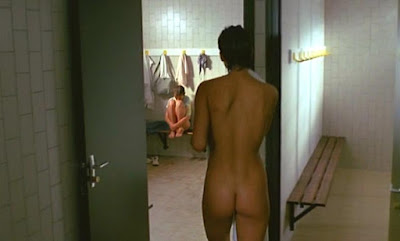2. "Runaway Train" (Andrei Konchalovsky, USA)
3. "The Purple Rose Of Cairo" (Woody Allen, USA)
4. "Come And See" (Elem Klimov, Soviet Union)
5. "Colonel Redl" (István Szabó, Hungary)
6. "The Emerald Forest" (John Boorman, USA)
7. "Ran" (Akira Kurosawa, Japan)
8. "Prizzi's Honor" (John Huston, USA)
9. "The Company Of Wolves" (Neil Jordan, UK)
10. "After Hours" (Martin Scorsese, USA)
Angry Harvest (Germany)
Bez konca (Poland)
The Coca-Cola Kid (Australia)
Le Declic (France)
Detective (France)
L'Effrontée (France)
Elvis Gratton (Canada)
Gritta von Rattenzuhausbeiuns (East Germany)
How Poets Are Losing Their Illusions (Czechoslovakia)
Joshua Then And Now (Canada)
The Kiss Of The Spider Woman (Brazil)
Mad Max Beyond Thunderdome (Australia)
Mr Vampire (Hong Kong)
Nadzor (Poland)
Och Karol (Poland)
Perinbaba (Czechoslovakia)
Police (France)
Ronja Rovardotter (Sweden)
Shoah (France)
Sugarbaby (Germany)
Top 10 Guilty Pleasures of 1985:
1. "Silip" (Elwood Perez, Philippines)
3. "Je vous salue Marie" (Switzerland)
Short Top 3:
1. "Le Livre de Marie" (Anne-Marie Miéville, Switzerland)
2. "I Hate You Now" (Richard Kern, USA)
3. "Rainbow War" (Bob Rogers, Canada)
Top 3 Music Videos:
1. "Take On Me" (Steve Barron, A-Ha)
2. "Cry" (Godley and Creme, Godley and Creme)
3. "Don't Stop The Dance" (Jean-Baptiste Mondino, Bryan Ferry)
Other great music videos:
Don't Come Around Here No More
Money For Nothing
Top Commercial:
"Varför ska vi bry oss om varandra?" (Roy Andersson, Sweden)
Lotto-Familjen (Sweden)
TV Top 3:
1. "Moonlighting: The Dream Sequence Always Rings Twice" (Peter Werner, ABC)
2. "Miami Vice: Out Where The Buses Don't Run" (Jim Johnston, NBC)
3. "Miami Vice: Evan" (Rob Cohen, NBC)
Cartoon Top 3:
1. "Jack Mac And Rad Boy Go!" (Wes Archer, USA)
2. "The Big Snit" (Richard Condie, NFB, Canada)
3. "Get A Job" (Brad Caslor, NFB, Canada)
Other great cartoons:
78 Tours (Switzerland)
Carnival (UK)
Drawing On My Mind
Eldorado (Italy)
Garbage In Garbage Out
Incubus (Italy)
1. "Moonlighting: The Dream Sequence Always Rings Twice" (Peter Werner, ABC)
2. "Miami Vice: Out Where The Buses Don't Run" (Jim Johnston, NBC)
3. "Miami Vice: Evan" (Rob Cohen, NBC)
Cartoon Top 3:
1. "Jack Mac And Rad Boy Go!" (Wes Archer, USA)
2. "The Big Snit" (Richard Condie, NFB, Canada)
3. "Get A Job" (Brad Caslor, NFB, Canada)
Other great cartoons:
78 Tours (Switzerland)
Anna & Bella (Holland)
Boom TownCarnival (UK)
Drawing On My Mind
Eldorado (Italy)
Garbage In Garbage Out
Incubus (Italy)
Jagged Edge
The Jewel Of The Nile
Ladyhawke
Letter To Brezhnev (UK)
Murphy's Romance
Padre Nuestro (Spain)
Poulet au vinaigre (France)
Le Pouvoir du mal
Sans toit ni loi (France)
Seduction: The Cruel Woman (Germany)
The Trip To Bountiful
A View To A Kill
Young Sherlock Holmes
Weak shorts:
The Wizard Of The Strings
Weak cartoons:
Break (Soviet Union)
Living In A Mobile Home (UK)
Love Addict
Love In The Fast Lane
Moebius Play
Second Class Mail (UK)
Street Of Crocodiles
Toilet Bowl (UK)
Tony de Peltrie (Canada)
Traveling Light
The Wreck Of Julie Plante (UK)
The Jewel Of The Nile
Ladyhawke
Letter To Brezhnev (UK)
Murphy's Romance
Padre Nuestro (Spain)
Poulet au vinaigre (France)
Le Pouvoir du mal
Sans toit ni loi (France)
Seduction: The Cruel Woman (Germany)
The Trip To Bountiful
A View To A Kill
Young Sherlock Holmes
Weak shorts:
The Wizard Of The Strings
Weak cartoons:
Break (Soviet Union)
Living In A Mobile Home (UK)
Love Addict
Love In The Fast Lane
Moebius Play
Second Class Mail (UK)
Street Of Crocodiles
Toilet Bowl (UK)
Tony de Peltrie (Canada)
Traveling Light
The Wreck Of Julie Plante (UK)










.JPG)





























.JPG)








